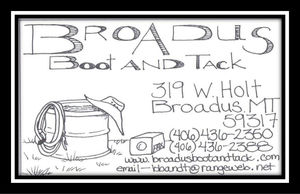MSU Extension suggests estate planning tools for owners of pets, service or companion animals
August 20, 2020
BOZEMAN — Whether companion animals, service animals or pets, animals play an important part in the lives of many Montanans. According to Montana State University Extension, animal owners can use estate planning tools to ensure their pets continue to receive proper care if the owner becomes incapacitated or dies.
In Montana, a pet is “any domesticated animal normally maintained in or near the household of its owner.” Marsha Goetting, MSU Extension family economics specialist, said a pet is considered tangible personal property just like other material goods such as cars or jewelry. When a pet owner dies, pets pass to beneficiaries by provisions in an owner’s will, by directives in an owner’s trust document, or by a priority list of heirs contained in the Montana Uniform Probate Code if an owner doesn’t have a will or trust.
“First, choose a willing caregiver and make a care plan for your pet that will lower your pet’s stress in the first days after you are gone,” said Wendy Wedum, Pondera County Extension agent. “Having your wishes written down will help your heirs avoid potential problems.”
A Montana honorary trust for pets is valid for 21 years, even if an owner writes a longer term in the trust document. The trust terminates after 21 years or when the pet dies, whichever comes first. Unless indicated in the trust document, Goetting and Wedum explained, the trustee may not use any portion of the principal or income from the trust for any other use than for the pet’s care.
Goetting said pet owners have choices when funding a pet trust. Funds could come from a payable-on-death designation, or POD, on financial accounts to the pet trust. Another option is a transfer-on-death registration, or TOD, with the pet trust as beneficiary for stocks, bonds, mutual funds and annuities. The owner could also direct the trustee in the pet trust document to sell assets, such as a vehicle, house or boat, and place those funds in the trust for the pet’s care.
Another source of funding is life insurance. A Montana pet is not considered a person, so it can’t be a beneficiary of a life insurance policy. But a pet owner may fund a pet trust by naming the trustee as the beneficiary of a life insurance policy. A pet owner also may have a percentage of an existing policy payable to the pet trust.
“Pet owners should consult with an attorney and/or life insurance agent about the correct way of naming the trustee of a pet trust as a beneficiary of a life insurance policy,” Wedum said.
More information can be found in the MontGuide “Estate Planning Tools for Pet Owners and Companion or Service Animals” at https://store. msuextension. org/publications/FamilyFinancialManagement /MT201405HR.pdf. For those who do not have computer access, copies are available from county Extension or reservation offices.







Reader Comments(0)